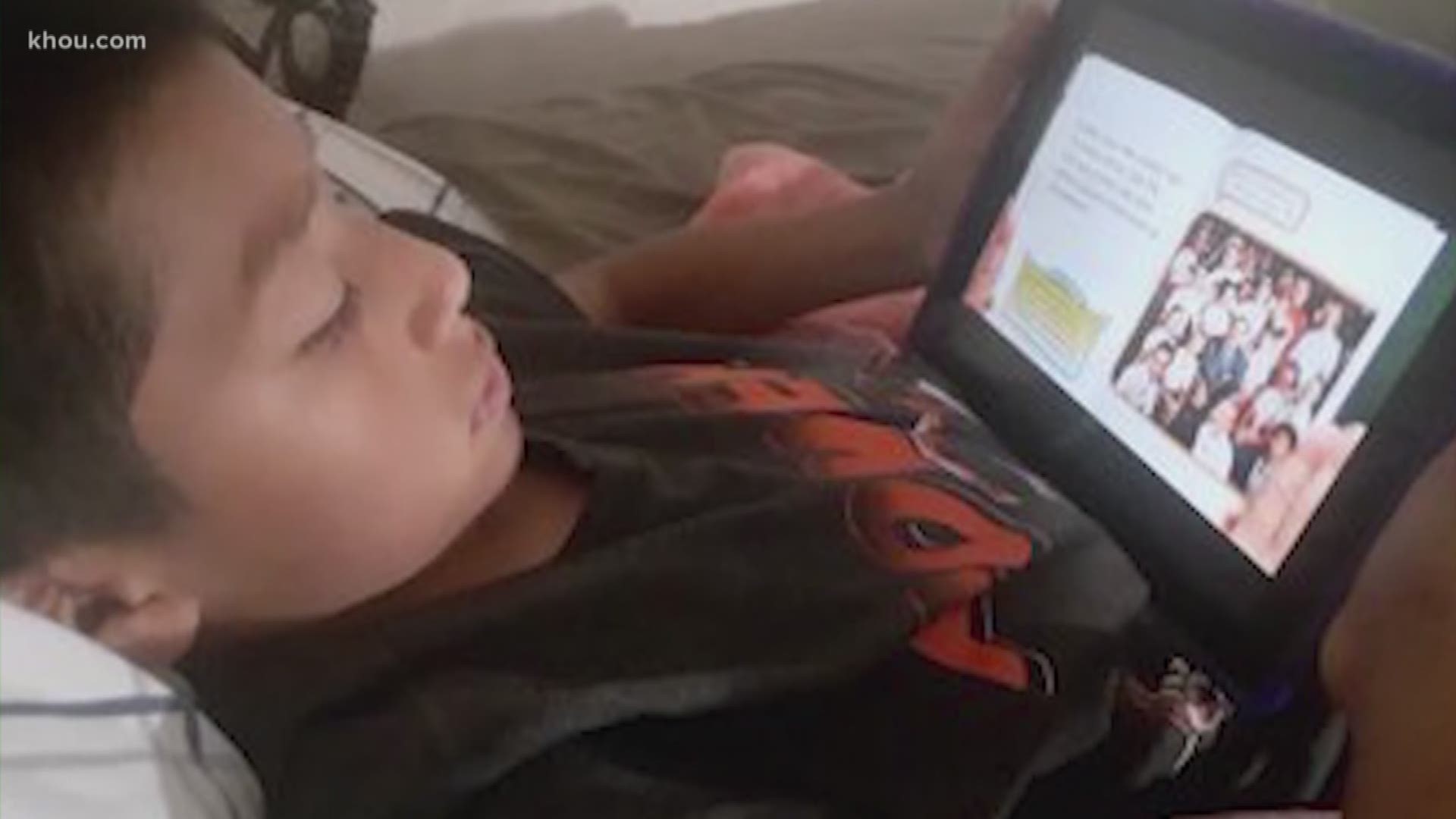HOUSTON — Governor Greg Abbott’s decision to close schools for the rest of the academic year has a lot of people wondering what happens next.
From grading to enrollment, parents want to know the impact this will have on their children’s education.
It’s a move many of them expected.
RELATED: Gov. Abbott creates strike force, eases medical restrictions and more in plan to slowly reopen Texas
On Facebook, parents praised Gov. Abbott’s executive order.
Houston Mayor Sylvester Turner supports the governor’s decision.
“Quite frankly, most schools were coming to an end in the month of May anyway,” Mayor Turner said.
This does not mean school is out for the rest of the school year.
In a statement to parents, the Texas Education Agency said, “Students must continue to receive daily academic support from their teachers and schools for the remainder of the 2019-2020 school year.”
However, some parents are worried about how their kids are going to finish this school year.
Ibrahim Firat, chief educational consultant for Firat Education, said some school districts have made changes to their grading policies.
He said Houston ISD is going to take the average of the first three grading periods students had in school.
“If you can maintain that average or higher at home, remote learning, then they will add that to your final average to calculate your final grade," Firat said.
Other parents want to know if students will be able to move onto the next grade.
“HISD made a clear statement that said because there are no STARR exams, and there’s no exams that relate to your movement from grade to grade, they take into account what you’ve had before everything locked down,” he said.
When it comes to available childcare now that some folks will be able to return to work but schools are closed, Dr. Melanie Johnson with Collaborative for Children said 70 percent of childcare centers in the Houston area are open.
She said these existing private businesses are available and accepting children.
Dr. Johnson said the only problem is many don’t have sufficient enrollment because they are practicing social distancing.
If you are interested in finding available resources visit findchildcarenow.org.
Coronavirus symptoms
The symptoms of coronavirus can be similar to the flu or a bad cold. Symptoms include a fever, cough and shortness of breath, according to the Centers for Disease Control. Some patients also have nausea, body aches, headaches and stomach issues. Losing your sense of taste and/or smell can also be an early warning sign.
Most healthy people will have mild symptoms. A study of more than 72,000 patients by the Centers for Disease Control in China showed 80 percent of the cases there were mild.
But infections can cause pneumonia, severe acute respiratory syndrome, kidney failure and even death, according to the World Health Organization. Older people with underlying health conditions are most at risk for becoming seriously ill. However, U.S. experts are seeing a significant number of younger people being hospitalized, including some in ICU.
The CDC believes symptoms may appear anywhere from two to 14 days after being exposed.
Human coronaviruses are usually spread through...
- The air by coughing or sneezing
- Close personal contact, such as touching or shaking hands
- Touching an object or surface with the virus on it, then touching your mouth, nose or eyes before washing your hands.
Help stop the spread of coronavirus
- Stay home when you are sick.
- Eat and sleep separately from your family members
- Use different utensils and dishes
- Cover your cough or sneeze with your arm, not your hand.
- If you use a tissue, throw it in the trash.
- Follow social distancing
Lower your risk
- Wash your hands often with soap and water for at least 20 seconds. If soap and water are not available, use an alcohol-based hand sanitizer.
- Avoid touching your eyes, nose, and mouth with unwashed hands.
- Avoid close contact with people who are sick.
- Clean and disinfect frequently touched objects and surfaces.
- If you are 60 or over and have an underlying health condition such as cardiovascular disease, diabetes or respiratory illnesses like asthma or COPD, the World Health Organization advises you to try to avoid crowds or places where you might interact with people who are sick.
Get complete coverage of the coronavirus by texting 'FACTS' to 713-526-1111.

